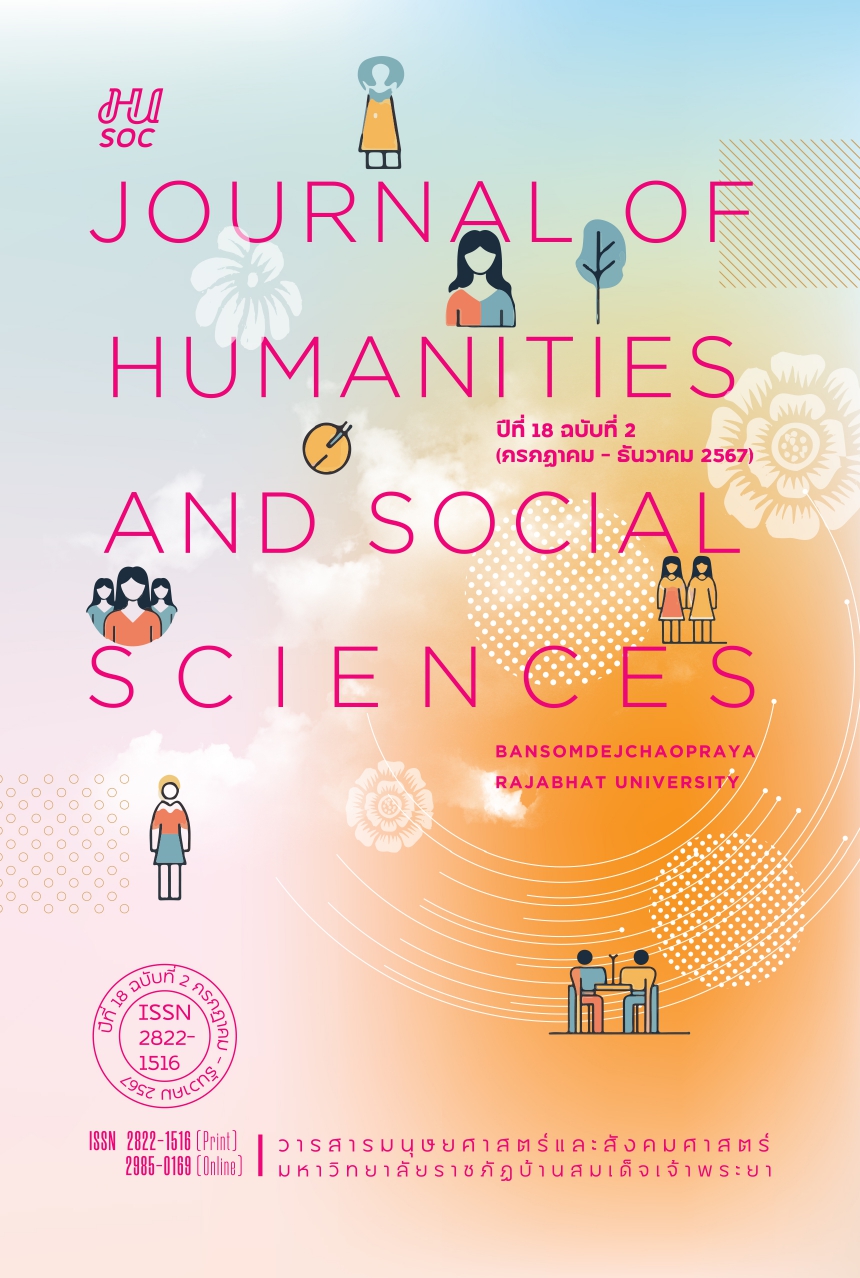Passive and Pre-active/Proactive Approach in Consumer Cases of Loan in Thailand
Keywords:
Process Development, Alternative Dispute Resolution, Mediation, Consumer Loan CasesAbstract
This research paper is part of a dissertation on the development of mediation processes in consumer cases in Thailand: a study of consumer loan cases. The primary objective of this dissertation is to study jurisprudential thoughts regarding the problems of alternative dispute resolution through mediation in unsecured personal loan consumer cases in Thailand. It includes a legal analysis of the problems and the impact of the laws and mediation rules applied in these cases in Thailand compared with those in the United States, the United Kingdom, and Japan. The study is conducted through qualitative research using document analysis, alongside collecting facts, statistics, experiences, and issues from the author’s practice to develop a guideline for improving the mediation system for unsecured personal loan cases in Thailand. The study found that legal problems and the application of mediation laws and rules, as well as the mediation management system, affect the reduction of case volume. This is because these cases differ from typical consumer cases where the consumer debtor breaches the contract. Additionally, the provisions of the Civil Procedure Code, Section 20 tri, the Consumer Protection Act B.E. 2522, Sections 10 (1) (1/11) and 20 (1), and the Mediation Act 2019, Section 69 (1), provide for a passive and formal mediation approach. Parties wishing to mediate must submit a request for mediation. Consequently, consumer debtors who breach the contract and avoid debt repayment will not submit a mediation request, rendering the mediation mechanism inefficient. Furthermore, the existing rules and regulations on the qualifications of mediators and conciliators stipulate only general dispute resolution work experience. This lack of specific knowledge about unsecured personal loans impedes effective dispute management and damage assessment in these cases. This paper proposes: 1) changing and developing mediation rules from a passive to a proactive approach (Pre-active/Proactive Approach), incorporating and promoting human rights, debt forgiveness, and win-win mediation concepts, alongside Buddhist philosophy, to create a new mediation framework called “Mediation for the People.” This aims to solve problems and reduce consumer debt, enabling debtors to escape debt traps and achieve sustainable development. 2) Revising the qualifications of mediators or conciliators by adding specific expertise requirements.
References
Bank of Thailand. (2023). Supervision of specialized financial institutions. Retrieved June 30, 2023. https://www.bot.or.th/th/our-roles/financial-institutions/sfi-supervisions.html [In Thai]
Bank of Thailand. (2021). Credit card and personal loan debt reconciliation fair. Retrieved November 20, 2020. https://www.bot.or.th/th/news-and-media/news/news-0210213.html [In Thai]
Brams, S. (2016). Game Theory Political Scientist Steven Brams on cooperative games, the Prisoner’s Dilemma, and win-win solutions in our daily life. Retrieved February 23, 2020. https://serious-science.org/game-theory-7846
Colombo, G. F., & Shimizu, H. (2016). Litigation or Litigiousness? Explaining Japan’s “Litigation Bubble” (2006-2010). In Oxford University Comparative Law Forum, 4, 1-25.
ICHIBA, K. (2022). KIN-YÛ ADR--A New ADR System in the Japanese Financial Industry. Retrieved February 25, 2022. https://www.nishimura.com/sites/default/files/tractate_pdf/ja/jcaa_newsletter_ichiba.pdf
Johnson, H. (2023). National Debt Relief can help you settle your debts for less than you owe. National Debt Relief Review. Retrieved August 16, 2023. https://www.nerdwallet.com/article/finance/national-debt-relief-debt-settlement
Kenneth, C. (2009). Mediation and Meditation: The Deeper Middle Way. Retrieved January 20, 2017. https://www.mediate.com/mediation-and-meditation-the-deeper-middle-way/
Menkel-Meadow, C. (2001). Aha? Is Creativity Possible in Legal Problem Solving and Teachable in Legal Education?. Harvard Negotiation Law Review, 6, 97-98, Retrieved December 5, 2017. http://scholarship.law.georgetown.edu/cgi/viewcontent.cgi?article=1170&context=facpub
Nash, J. F. (1950). Equilibrium points in n-person games. Proceedings of the national academy of sciences, 36(1), 48-49.
Nicastro, S. (2020). National Debt Relief Review: Does Debt Settlement Work?. Retrieved February 12, 2022. https://www.nerdwallet.com/article/finance/national-debt-relief-debt-settlement
Organisation for Economic Cooperation and Development (OECD). (2018). Household Debt. Retrieved February 25, 2022. https://www.oecd-ilibrary.org/content/data/f03b6469-en
Ostrom, E. (2005). Understanding Institutional Diversity. Princeton University Press.
Thanaboriboon, P. (2022). Mediation Concepts and Mediation Process for Consumer Cases of Loan in Thailand. Dunlaphaha, 69(1), 89-90 [In Thai]
Vayuparb, P. (2016). Consumer Protection Procedure. (3rd ed.). Krung Siam Publishing Company Limited. [In Thai]
Vitasek, K. (2017). Using Game Theory to Create Win-Win Supplier Agreements. Retrieved February 23, 2020. https://www.linkedin.com/pulse/using-game-theory-create-win-win-supplier-agreements-kate-vitasek
Downloads
Published
How to Cite
Issue
Section
License
Copyright (c) 2024 Faculty of Humanities and Social Sciences Bansomdejchaopraya Rajabhat University

This work is licensed under a Creative Commons Attribution-NonCommercial-NoDerivatives 4.0 International License.




